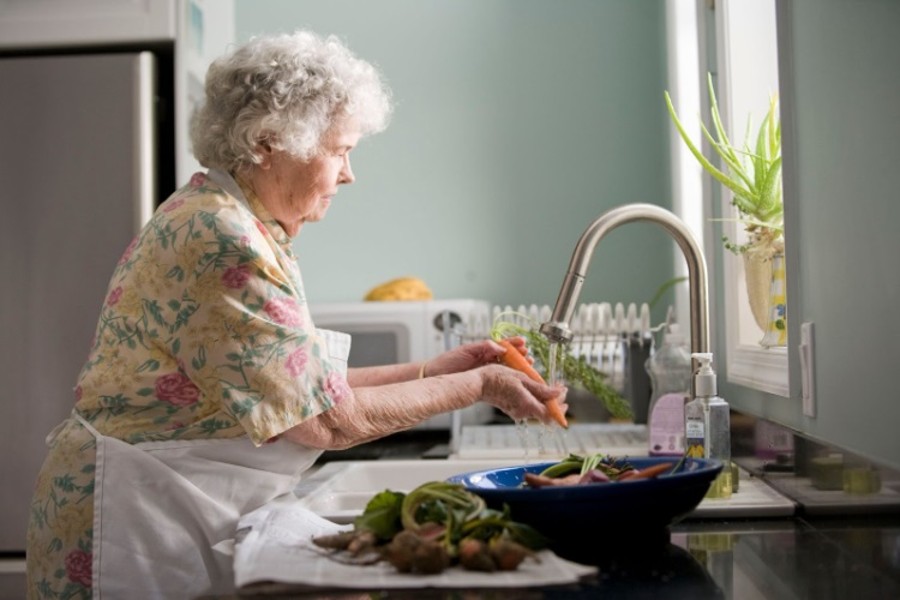
As we age, our healthcare needs undergo a significant transformation, necessitating a specialized approach that addresses the unique challenges faced by seniors.
Primary care emerges as the cornerstone of elderly health, ensuring comprehensive and personalized attention beyond mere medical diagnoses. The multifaceted nature of primary care becomes apparent as it addresses not only the physical ailments but also the emotional and psychological well-being of older adults. In this article, we delve into the reasons why primary care is indispensable for seniors, highlighting the diverse aspects that contribute to their overall quality of life.
Paving the Way for a Healthy Aging Journey
One of the primary benefits of primary care for seniors lies in its emphasis on preventive measures. Regular check-ups and screenings, tailored to the specific needs of older adults, enable the early detection of potential health issues. From blood pressure monitoring to cancer screenings, primary care physicians are equipped to identify risk factors and intervene before conditions escalate. Moreover, they play a pivotal role in immunization, safeguarding seniors against diseases like influenza and pneumonia, which can have severe consequences in older age. By focusing on prevention, primary care not only enhances the longevity of seniors but also ensures a higher quality of life, enabling them to engage actively in their communities and pursue their passions.
Addressing the Mind, Body, and Spirit
Primary care for seniors extends beyond the physical realm, embracing a holistic approach that recognizes the interconnectedness of the mind, body, and spirit. Elderly individuals often grapple with complex health issues, including chronic conditions and mental health concerns. Primary care physicians, well-versed in geriatric medicine, develop comprehensive care plans that encompass not only medical treatments but also emotional support. They act as trusted confidants, addressing the mental and emotional aspects of aging, including anxiety, depression, and loneliness. By fostering a sense of belonging and understanding, primary care physicians empower seniors to navigate the challenges of aging with resilience, promoting mental well-being alongside physical health.
Tailored Support for Enhanced Quality of Life
Within the realm of primary care, specialized centers have emerged as beacons of comprehensive support for the elderly. Centers focus exclusively on the unique needs of seniors, offering a plethora of specialized services ranging from geriatric assessments to memory care programs. By having access to healthcare professionals specifically trained in geriatrics, seniors receive personalized attention that takes into account their age-related challenges, ensuring that their healthcare experience is not just effective but also empathetic. These centers often incorporate a team-based approach, including geriatricians, nurses, social workers, and therapists, fostering a collaborative environment that addresses all aspects of senior health. A specialized care model such as the one implemented in CenterWell Senior Primary Care not only complements the traditional primary care setting but also enriches the overall healthcare journey for seniors. That way, it creates a seamless continuum of support that significantly enhances their quality of life.
A Key Role of Primary Care

In the realm of senior primary care, education becomes a powerful tool for empowerment. Primary care physicians and healthcare professionals at specialized centers play a pivotal role in educating seniors about their health conditions, medications, and lifestyle choices. Through tailored health education programs, seniors gain a deeper understanding of their health, enabling them to make informed decisions and actively participate in their care plans. This knowledge not only enhances their overall health outcomes but also instills a sense of confidence, allowing them to navigate their healthcare journeys with a proactive mindset.
Continuity of Care
Continuity of care, a hallmark of primary care, is especially vital for seniors. Building long-term relationships with primary care physicians fosters trust and familiarity, creating a safe space where seniors can openly discuss their concerns and preferences. This ongoing relationship allows physicians to track their patients’ health over time, detect subtle changes, and intervene promptly. Moreover, it facilitates a deeper understanding of seniors’ unique needs and values, enabling healthcare providers to tailor their services accordingly. Continuity of care ensures that seniors receive consistent, personalized attention, resulting in improved health outcomes and an enhanced quality of life.
In the tapestry of senior health, primary care emerges as the guiding thread, weaving together prevention, specialized support, education, continuity of care, and social engagement into a comprehensive and holistic approach. Through the expertise of the specialized services provided by centers, seniors receive not just medical attention, but a tailored and empathetic support system designed to enhance their overall quality of life. By focusing not only on physical ailments but also on mental well-being, education, and community engagement, primary care ensures that seniors embark on their aging journey with confidence and vitality.
- LISC CEO Michael T. Pugh Recognized Among 2024 Worthy 100 Leaders
- NY Lawmakers Celebrate Historic MENA Data Recognition Bill Signed By Hochul
- Sponsored Love: Leadership Skills Training Courses: Invest In Your Future Today
- Senator Hoylman-Sigal Calls On Independent Schools To Adopt NYC Public School Calendar
- Mayor Adams Celebrates 65 Million NYC Visitors In 2024, Second-Highest Ever
Become a Harlem Insider!
By submitting this form, you are consenting to receive marketing emails from: . You can revoke your consent to receive emails at any time by using the SafeUnsubscribe® link, found at the bottom of every email. Emails are serviced by Constant Contact









